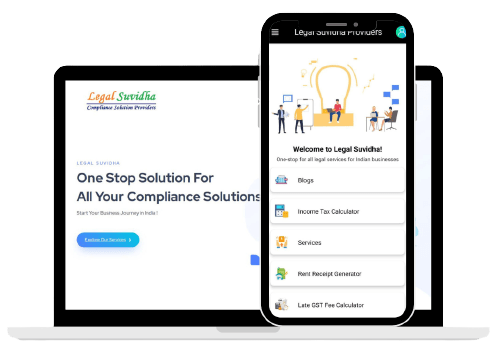Licensing and Certification (ISO, SOC, ESG): What Founders Must Know
Licensing and Certification (ISO, SOC, ESG): What Founders Must Know The Missed Opportunity That Changed Everything A foreign client ghosted...
Software as a service (SaaS) agreement is a legal contract between a SaaS provider and a user, governing the terms and conditions of access and use of software applications delivered over the internet. It outlines the specific details of the services being provided, as well as the rights and responsibilities of both parties.

Happy Clients
Years Experience

Happy Clients
Years Experience
In a SaaS agreement, the provider grants the user a license to access and use their software application, usually for a subscription fee. The agreement outlines the specific services being provided, including any limitations on usage or access, and any support or maintenance that the provider will provide.
The agreement also typically includes terms related to data security and privacy, intellectual property rights, warranties and disclaimers, and any applicable laws and regulations. It may also specify the duration of the agreement, the fees and payment terms, and any termination provisions.
Overall, a SaaS agreement is designed to protect both the provider and the user, ensuring that the terms of the arrangement are clearly defined and understood. It is important for both parties to carefully review and negotiate the terms of the agreement before signing, and to seek legal counsel if necessary.
| Clearly defined services | A SaaS agreement clearly outlines the specific services being provided, including any limitations on usage or access, which helps to avoid confusion and misunderstandings. |
| Predictable pricing | Typically, SaaS providers charge a recurring subscription fee, which helps users to budget and plan for software expenses more easily. |
| Automatic updates | SaaS providers are responsible for updating and maintaining their software applications, which ensures that users always have access to the latest features and functionality. |
| Accessibility | SaaS applications can be accessed from anywhere with an internet connection, which makes them particularly useful for remote teams and users who need to work on the go. |
| Scalability | SaaS applications can typically be scaled up or down depending on the user’s needs, making them flexible and cost-effective solutions for businesses of all sizes. |
| Lower upfront costs | Because SaaS applications are delivered over the Internet, users do not need to invest in expensive hardware or infrastructure, which can save them money and resources. |
| Reduced IT burden | SaaS providers handle the hosting, maintenance, and support of their software applications, which means that users do not need to devote as much time or resources to IT management. |
| Data security | SaaS providers are responsible for securing their software applications and user data, which can be particularly important for businesses that handle sensitive or confidential information. |
Step 1: Identify the parties involved: The first step in creating a SaaS agreement is to identify the parties involved, including the provider and the user.
Step 2: Define the scope of services: The agreement should clearly outline the specific services being provided, including any limitations on usage or access.
Step 3: Specify the pricing and payment terms: The agreement should include details of the subscription fees or other costs associated with using the software application, as well as any payment terms and conditions.
Step 4: Outline the support and maintenance terms: The agreement should specify the level of support and maintenance that the provider will provide, as well as any relevant service level agreements (SLAs).
Step 5: Address data security and privacy: The agreement should include provisions related to data security and privacy, such as how user data will be stored, protected, and used.
Step 6: Define intellectual property rights: The agreement should specify the ownership and usage rights of any intellectual property associated with the software application.
Step 7: Include warranties and disclaimers: The agreement should include any warranties or disclaimers related to the performance and functionality of the software application.
Step 8: Define termination provisions: The agreement should specify the conditions under which the agreement can be terminated by either party.
Step 9: Review and negotiation: Once the agreement is drafted, it should be reviewed by both parties, and any necessary revisions or negotiations should be made.
Step 10: Sign and execute the agreement: Once both parties agree to the terms of the agreement, it should be signed and executed by all parties involved.
1. Service level agreement (SLA)
2. End user license agreement (EULA)
3. Data processing agreement (DPA)
4. Acceptable use policy (AUP)
5. Privacy policy
6. Intellectual property assignment agreement
7. The non-disclosure agreement (NDA)
A SaaS agreement is a subscription-based model where the customer pays a fee for access to the software. A software license agreement, on the other hand, grants the customer a perpetual license to use the software.
Yes, a SaaS agreement can be terminated early under certain circumstances. The termination clauses in the agreement outline the specific conditions under which either party can terminate the agreement.
The SaaS agreement typically includes provisions for data retention and transfer in the event of termination. The customer’s data may be deleted or transferred to the customer or a third-party provider, depending on the agreement terms.
Yes, a SaaS agreement can be customized to meet the specific needs of the customer. The agreement can be amended to include additional provisions or clauses to address unique requirements.
The data privacy and security section should include provisions for data encryption, backups, and disaster recovery. It should also outline the process for reporting data breaches and the SaaS provider’s liability in the event of a breach.
With a commitment to exceeding expectations and a passion for delivering results, choosing us means choosing a partner dedicated to your success.

We provide free of cost consultation and legal advice to our clients.

We are a team of more than 15+ professionals with 11 years of experience.


All our services are online no need you to travel from your place.

There are no hidden & extra charges* other than the quote/invoice we provide.

We aim that all our customers are fully satisfied with our services.

We value your time and we promise all our services are delivered on time.

We provide free of cost consultation and legal advice to our clients.
In this Journey of the past 14+ years, we had gained the trust of many startups, businesses, and professionals in India and stand with a 4.9/5 rating in google reviews.We register business online and save time & paperwork.
Trustindex verifies that the original source of the review is Google. I recently got my trademark registered through Legal Suvidha, and I must say the experience was absolutely seamless. The team was proactive in updating me about every stage of the TM application process and patiently answered all my queries. Highly recommended to any startup or business owner looking for reliable legal and compliance support.Trustindex verifies that the original source of the review is Google. I’ve been working with this firm for the past 3 years, and I couldn’t be more satisfied with their services. Their team has consistently provided accurate, timely, and dependable financial and compliance support. A special thanks to Priyanka and Mayank for their dedication, professionalism, and personal attention to every detail. Highly recommended for anyone looking for reliable services!Trustindex verifies that the original source of the review is Google. I've been working with Priyanka and her team at Legal Suvidha for the past 5 years for my LLP, Adornfx Multimedia. They've consistently provided excellent support, especially with ROC filings. Their service is reliable, timely, and hassle-free. Highly recommended!Trustindex verifies that the original source of the review is Google. I am delighted to share my experience with Legal Suvidha Firm, where professionalism and dedication shine through in every interaction. Having worked with them for the past 3-4 years, I can confidently say that their team is truly exceptional. The commitment they show to their work is truly commendable; they deliver on every promise made without any hint of fraud or dishonesty, which unfortunately is not the case with many firms in the market today. Their integrity sets them apart and gives clients the peace of mind they need when it comes to legal matters or any other certifications. Moreover, I have found their pricing to be very reasonable and reflect the quality of services provided. They offer excellent value for money, ensuring that their clients receive top-notch legal services without breaking the bank. I highly recommend Legal Suvidha Legal Firm without any hesitation. If you’re looking for a reliable legal partner with a dedicated team that truly cares, look no further than Legal Suvidha. My experience has been nothing short of excellent, and I am confident that others will feel the same! For Talin Remedies Pvt Ltd Ravi KumarTrustindex verifies that the original source of the review is Google. One of the easiest firms to work with. Soft-spoken, well aware of their scope of work, and the most affordable (especially for new comers). They're always available to help out giving solutions in the easiest way possible. Got their number from a mentor, and would highly recommend their services if you're looking to start and manage accountancy/compliance related work for your firm!Trustindex verifies that the original source of the review is Google. Mayank & the Legal Suvidha team are fantastic. They really try to understand the business like insiders and don't give you templatized solutions. The staff are extremely supportive and go out of their way to help you. I would recommend Mayank to anybody new to the startup ecosystem!Verified by TrustindexTrustindex verified badge is the Universal Symbol of Trust. Only the greatest companies can get the verified badge who has a review score above 4.5, based on customer reviews over the past 12 months. Read more


Explore more of our blogs to have better clarity and understanding
of the latest corporate & business updates.
Licensing and Certification (ISO, SOC, ESG): What Founders Must Know The Missed Opportunity That Changed Everything A foreign client ghosted...
Why Section 8 Companies Are Gaining Momentum in 2025 What happened to Meera that changed everything? It was 3:00 p.m....
Niti Aayog Registration, 80G & CSR: Unlocking NGO Compliance Benefits Why Even Good NGOs Struggle Without Compliance I’ve been feeding...
How Startups Can Use AI Agents for GST, TDS & ROC Filing A Monday Morning That Ruined a Deal Ever...
How to Structure Your Startup for Cross-Border Investment When Global Interest Meets Local Friction You built a product global investors...
Taking Your Startup Global: Legal Steps to Expand into Dubai, US & SEA The Dream and the Dilemma Amit had...
Here are some answers to potential questions that may arise as you start your business.
Register your business, obtain necessary licenses, and fulfill tax obligations.
Consider factors like ownership, liability, and tax implications to choose from options like sole proprietorship, partnership, or company registration.
Choose a unique business name, obtain required IDs like Director Identification Number (DIN), and file incorporation documents with the Registrar of Companies (ROC).
Obtain GST registration, trade licenses, and any industry-specific permits required to operate legally.
Maintain accurate financial records, file tax returns on time, and adhere to the tax laws applicable to your business.
Yes, startups in India can benefit from various government schemes offering tax exemptions, funding support, and incubation facilities.
Secure patents, trademarks, or copyrights to safeguard your intellectual assets from infringement or unauthorized use.
Challenges include navigating bureaucratic hurdles, complying with complex regulations, and competing in a crowded marketplace.
Looking For More Information? Contact Us
Sign up to receive email updates on new product announcements, special promotions, sales & more.
Redefining the experience of legal services. Now all Professional Services in a Single Click !


Copyright © 2025 Legal Suvidha Providers LLP. All rights reserved.